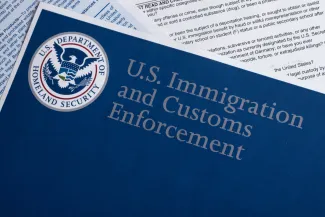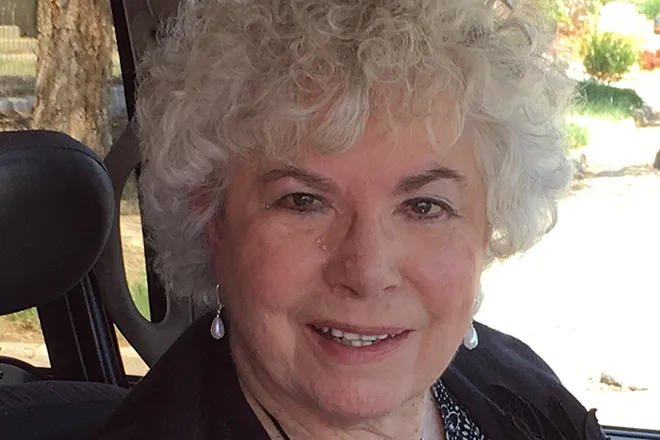
Mesa County sues Colorado over immigration enforcement law
Mesa County is suing top Colorado officials over a state law that limits the type of information local law enforcement can share with federal immigration authorities, continuing fallout from a June traffic stop in the county that led to a Utah college student’s 15-day detention.
The lawsuit, filed Thursday in federal court in Denver, alleges that the Colorado law, known as Article 74, is vague to the point of being unconstitutional and interferes with the federal government’s constitutional discretion over immigration.
“The vagueness and lack of clarity surrounding the operation and scope of Article 74, coupled with the severe penalties and hardships for noncompliance, has caused confusion among law enforcement agencies, systemically chilled Plaintiffs’ interactions with federal law enforcement, and caused the Mesa County Sheriff’s Office to pull back from cooperation with federal law enforcement agencies,” the lawsuit says.

© danielfela - iStock-507873830
Article 74, created through bills passed in 2021 and this year, prohibits local law enforcement and government officials from sharing certain information with federal agents for the purpose of immigration enforcement. There are exceptions for active criminal investigations.
Earlier this summer, Mesa County Sheriff’s Deputy Alexander Zwinck pulled over a 19-year old college studentfrom Utah, Caroline Dias Goncalves, for trailing a semitrailer too closely. Zwinck let Goncalves go with a warning, but told immigration officials about her presence in the county through a Signal group chat meant for drug enforcement operations. Goncalves, who is from Brazil and has applied for asylum, was then detained by Immigration and Customs Enforcement agents for nearly two weeks.
Afterwards, Mesa County Sheriff Todd Rowell placed Zwinck on a three-week unpaid leave and Attorney General Phil Weiser filed a lawsuit against the deputy.
Rowell is a plaintiff in the county’s lawsuit against the state.
We will not stand by while our employees are targeted for doing their jobs.
“The statute’s lack of clarity creates a significant risk, as we’ve already seen, of arbitrary enforcement, which could lead to substantial fines and legal challenges against our employees,” Mesa County Attorney Todd Starr said during a county commissioner meeting on Tuesday. “This action sends a clear message: We will not stand by while our employees are targeted for doing their jobs. This step is not just lawful, it’s necessary. It protects those who protect our community and ensures they can continue to work without fear of politically motivated litigation.”
The lawsuit alleges that Article 74 has compromised criminal investigations in Mesa County related to drug smuggling, child exploitation and sex crimes because it limits collaboration with local and federal law enforcement.
The county wants a federal judge to clarify that law enforcement and government employees violate Article 74 only if they disclose personal information for the “sole” purpose of helping with immigration enforcement, and that local law enforcement can inquire about someone’s immigration status for “reasonable and legitimate law enforcement purposes.”
Weiser and Governor Jared Polis are named as defendants.
In a statement, Weiser spokesperson Lawrence Pacheco wrote that Colorado’s law is clear that state law enforcement does not do federal civil immigration enforcement.
“It’s unfortunate that Mesa County filed this lawsuit. The Department of Law has a responsibility to follow facts and defend and enforce state law. We’ll continue to take this duty seriously,” he wrote.

















